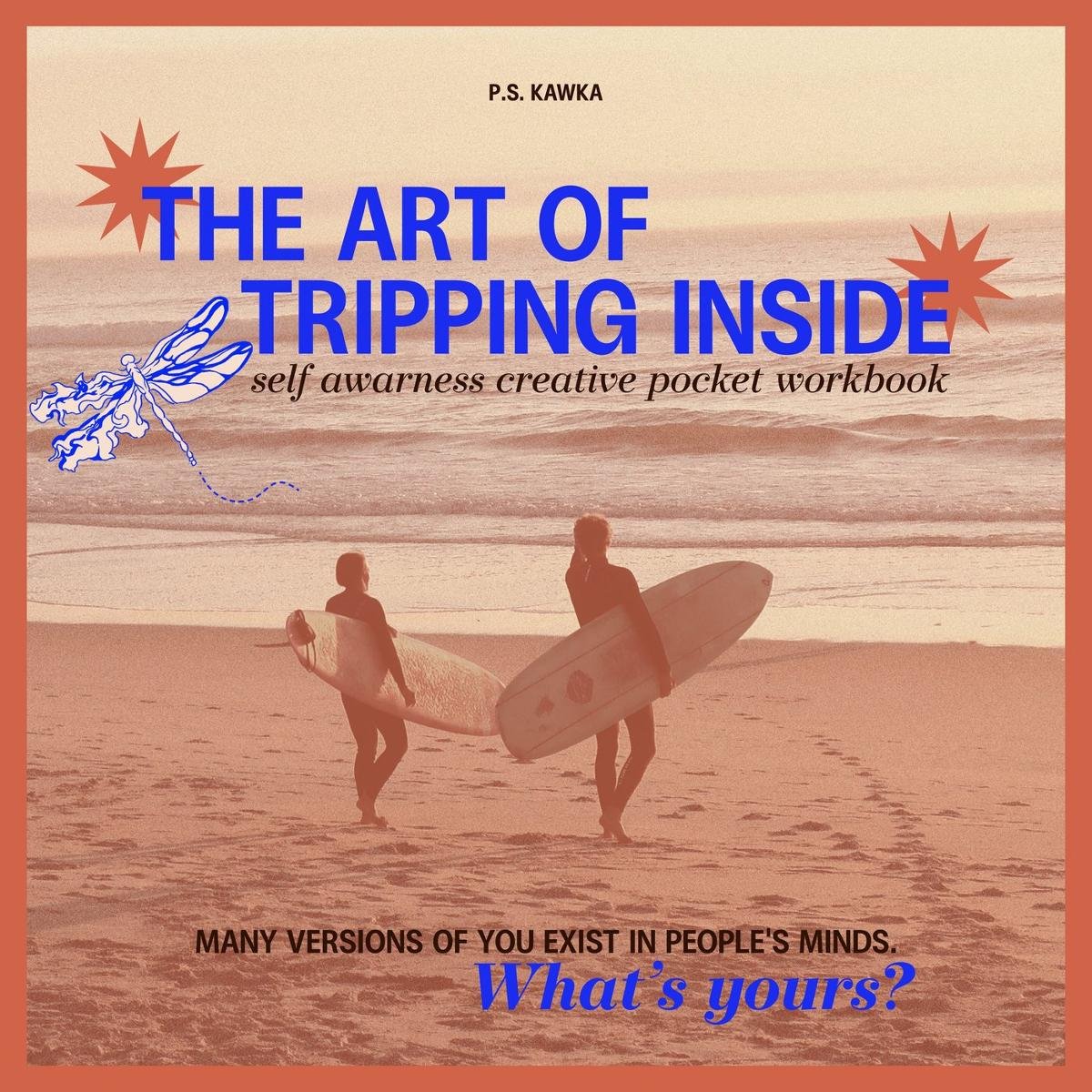Arendt H. Men i dark times
| Szczegóły | |
|---|---|
| Tytuł | Arendt H. Men i dark times |
| Rozszerzenie: | |
Arendt H. Men i dark times PDF - Pobierz:
Pobierz PDF
Arendt H. Men i dark times - podejrzyj 20 pierwszych stron:
Strona 1
Men in
Dark Times
HANNAH ARENDT
Strona 2
MEN IN DARK TIMES
Hannah Arendt
A HARVEST BOOK
HARCOURT, BRACE & WORLD, INC.
NEW YORK
Strona 3
Copyright © 1955, 1965, 1966, 1 967, 1968 by Hannah Arendt. All
rights reserved. No p art of this publication m ay be reproduced or transm itted
in any form or by any means, electronic or m echanical, including photocopy,
recording, or any information storage and retrieval system, 'without permission
in w riting from the publisher. Library of Congress Catalog Card Number:
6 8-24381. Printed in the United States of Am erica.
“On Humanity in D ark Tim es: Thoughts about Lessing,” an address on
accepting the Lessing Prize of the F ree City of Hamburg in 1959, origi
nally w ritten in German, published by R . Piper, M unich, 1960, translated
by C lara and Richard W inston.
“Rosa Luxem burg: 1 8 7 1 -1 9 1 9 ,” a review of j . P . N ettl, Rosa Luxem burg, in
T he N ew York. Review o f Books, 1966.
“A Christian on S t Peter's Chair from 1958 to 1963,” a review of Pope John
X X III, Journal o f a Soul, in T h e N ew York Review of Books, 1965.
“Karl Jaspers: A Laudatio,” address given in 1958 when the German Peace
Prize was awarded to Karl Jaspers, originally w ritten in German and
published by R. Piper, M unich, 1958, translated by C lara and Richard
W inston.
“Karl Jaspers: Citizen of the W orld?” appeared in T he Philosophy of Karl
Jaspers, edited by P. A. Schilpp, 1957, now published by Open Court
Publishing Company, L a Salle, HI. for The Library of Living Philoso
phers, Inc. Used by permission.
“Isak Dinesen: 1 8 8 5 -1 9 6 3 ,” a review in T he N ew Yorker, 1968, of Parm enia
Miguel, Titania. T h e Biography of Isak D inesen.
“Hermann Broch: 1 8 8 6 -1 9 5 1 ,” introduction to two volumes of essays in
G esam m elte W erke, Rheinverlag, Zürich, 1955 (now Suhrkamp, Frank
fu rt/M .), originally w ritten in German, translated by C lara and Richard
W inston.
“W alter Benjam in: 1 8 9 2 -1 9 4 0 ,” originally in T h e N ew Yorker, 1968; intro
duction to a collection of his essays, Illum inations, H arcourt, B race &
W orld, 1968, originally w ritten in German, translated by H arry Zohn.
“B ertolt B rech t: 1 8 9 8 -1 9 5 6 ” appeared in T h e N ew Yorker, 1966.
“W aldem ar G urian: 1 9 0 3 -1 9 5 4 ” appeared in The Gurian M emorial Issue of
T h e Review o f Politics, 1955.
“Randall Jarrell: 1 9 1 4 -1 9 6 5 ” appeared in Randall Jarrell, 1 9 1 4 -1 9 6 5 , F arrar,
Straus & Giroux, 1967.
Strona 4
Contents
PREFACE vii
ON HUMANITY IN DARK TIMES:
THOUGHTS ABOUT LESSING
Translated by Clara and R ichard W inston
3
ROSA LUXEMBURG: 1871-1919
33
ANGELO GIUSEPPE RONCALLI: A CHRISTIAN
ON ST. PETER’S CHAIR FROM 1958 TO 1963
57
KARL JASPERS: A LAUDATIO
Translated by Clara and Richard W inston
71
KARL JASPERS: CITIZEN OF THE WORLD?
8i
Strona 5
MEN IN DARE TIMES
ISAK DINESEN: 1885-1963
95
HERMANN BROCH: 1886-1951
Translated by R ichard W inston
ill
WALTER BENJAMIN: 1892-1940
Translated by H arry Zohn
153
BERTOLT BRECHT: 1898-1956
207
WALDEMAR GURIAN: 1903-1954
251
RANDALL JARRELL: 1914-1965
263
INDEX 269
vi
Strona 6
PREFACE
W r it t e n over a period of twelve years on the spur of occasion
or opportunity, this collection of essays and articles is primarily
concerned with persons—how they lived their lives, how they
moved in the world, and how they were affected by historical
time. The people assembled here could hardly be more unlike
each other, and it is not difficult to imagine how they might have
protested, had they been given a voice in the matter, against be
ing gathered into a common room, as it were. For they have in
common neither gifts nor convictions, neither profession nor
milieu; with one exception, they hardly knew of each other. But
they were contemporaries, though belonging to different genera
tions—except, of course, for Lessing, who, however, in the intro
ductory essay is treated as though he were a contemporary. Thus
they share with each other the age in which their life span fell,
the world during the first half of the twentieth century with its
political catastrophes, its moral disasters, and its astonishing de
velopment of the arts and sciences. And while this age killed
some of them and determined the life and work of others, there
are a few who were hardly affected and none who could be said
vii
Strona 7
MEN IN DARK TIMES
to be conditioned by it. Those who are on the lookout for repre
sentatives of an era, for mouthpieces of the Z eitgeist, for expo
nents of History (spelled with a capital H ) will look here in vain.
Still, the historical time, the “dark times” mentioned in the
title, is, I think, visible everywhere in this book. I borrow the
term from Brecht’s famous poem “To Posterity,” which mentions
the disorder and the hunger, the massacres and the slaughterers,
the outrage over injustice and the despair “when there was only
wrong and no outrage,” the legitimate hatred that makes you ugly
nevertheless, the well-founded wrath that makes the voice grow
hoarse. All this was real enough as it took place in public; there
was nothing secret or mysterious about it. And still, it was by no
means visible to all, nor was it at all easy to perceive it; for, un
til the very moment when catastrophe overtook everything and
everybody, it was covered up not by realities but by the highly
efficient talk and double-talk of nearly all official representatives
who, without interruption and in many ingenious variations, ex
plained away unpleasant facts and justified concerns. When we
think of dark times and of people living and moving in them, we
have to take this camouflage, emanating from and spread by “the
establishment”—or “the system,” as it was then called—also into
account. If it is the function of the public realm to throw light on
the affairs of men by providing a space of appearances in which
they can show in deed and word, for better and worse, who they
are and what they can do, then darkness has come when this
light is extinguished by “credibility gaps” and “invisible govern
ment,” by speech that does not disclose what is but sweeps it
under the carpet, by exhortations, moral and Otherwise, that,
under die pretext of upholding old truths, degrade all truth to
meaningless triviality.
Nothing of this is new. These are the conditions which, thirty
years ago, were described by Sartre in L a N ausée (which I think
is still his best book) in terms of bad faith and Vesprit d e sérieux,
a world in which everybody who is publicly recognized belongs
among the salauds, and everything that is exists in an opaque,
meaningless thereness which spreads obfuscation and causes dis
gust. And these are the same conditions which, forty years ago
viii
Strona 8
PREFACE
(though for altogether different purposes), Heidegger described
with uncanny precision in those paragraphs of B eing an d Tim e
that deal with “the they,” their “mere talk,” and, generally, with
everything that, unhidden and unprotected by the privacy of the
self, appears in public. In his description of human existence,
everything that is real or authentic is assaulted by the overwhelm
ing power of “mere talk” that irresistibly arises out of the public
realm, determining every aspect of everyday existence, anticipat
ing and annihilating the sense or die nonsense of everything the
future may bring. There is no escape, according to Heidegger,
from the “incomprehensible triviality” of this common everyday
world except by withdrawal from it into that solitude which
philosophers since Parmenides and Plato have opposed to the
political realm. We are here not concerned with the philosophical
relevance of Heidegger’s analyses (which, in my opinion, is un
deniable) nor with the tradition of philosophic thought that
stands behind them, but exclusively with certain underlying ex
periences of the time and their conceptual description. In our
context, the point is that the sarcastic, perverse-sounding state
ment, D as L ich t d er Ö ffen tlichkeit verdu nkelt alles ( “The light
of the public obscures everything”), went to the very heart of
the matter and actually was no more than the most succinct
Isumming-up of existing conditions.
' “Dark times,” in the broader sense I propose here, are as such
not identical with the monstrosities of this century which indeed
are of a horrible novelty. Dark times, in contrast, are not only not
new, they are no rarity in history, although they were perhaps
\unknown in American history, which otherwise has its fair share,
[past and present, of crime and disaster. That even in the darkest
of times we have the right to expect some illumination, and that
such illumination may well come less from theories and concepts
than from the uncertain, flickering, and often weak light that
some men and women, in their lives and their works, will kindle
under almost all circumstances and shed over the time span that
was given them on earth—this conviction is the inarticulate back
ground against which these profiles were drawn. Eyes so used to
darkness as ours will hardly be able to tell whether their light
ix
Strona 9
MEN IN DARK TIMES
was the light of a candle or that of a bisizing sun. But such ob
jective evaluation seems to me a matter of secondary importance
which can be safely left to posterity.
January 1968
x
Strona 10
Men in Dark Times
Strona 11
ON H UM ANITY IN DARK TIMES:
Thoughts about Lessing1
I
T he distinction conferred by a free city, and a prize that bears
the name of Lessing, are a great honor. I admit that I do not
know how I have come to receive it, and also that it has not been
altogether easy for me to come to terms with it. In saying this
I can ignore entirely the delicate question of merit. In this very
respect an honor gives us a forcible lesson in modesty; for it
implies that it is not for us to judge our own merits as we judge
the merits and accomplishments of others. In awards, the world
speaks out, and if we accept the award and express our gratitude
for it, we can do so only by ignoring ourselves and acting entirely
within the framework of our attitude toward the world, toward
a world and public to which we owe the space into which we
speak and in which we are heard.
But the honor not only reminds us emphatically of the gratitude
we owe the world; it also, to a very high degree, obligates us to
it. Since we can always reject the honor, by accepting it we are
not only strengthened in our position within the world but are
accepting a land of commitment to it. That a person appears in
public at all, and that the public receives and confirms him, is by 1
1 Address on accepting the Lessing Prize of the Free C ity of Hamburg.
3
Strona 12
MEN IN DARK TIM ES
no means a matter to be taken for granted. Only the genius is
driven by his very gifts into public life, and is exempted from any
decision of tins sort. In his case alone, honors only continue the
concord with the world, sound an existing harmony in full pub
licity, which has arisen independently of all considerations and de
cisions, independently also of all obligations, as if it were a natural
phenomenon erupting into human society. To this phenomenon
we can in truth apply what Lessing once said about the man of
genius in two of his finest lines of verse:
Was ihn bewegt, bewegt. Was ihm gefaßt, gefällt.
Sein glücklicher Geschmack ist der Geschmack der W elt.
( W h a t m oves h im , m oves. W h a t p leases h im , p leases.
H is felicitou s ta ste is th e w orld’s ta s te .)
Nothing in our time is more dubious, it seems to me, than our
attitude toward the world, nothing less to be taken for granted
than that concord with what appears in public which an honor
imposes on us, and the existence of which it affirms. In our
century even genius has been able to develop only in conflict with
the world and the public realm, although it naturally finds, as it
always has done, its own peculiar concord with its audience. But
the world and the people who inhabit it are not the same. The
world lies between people, and this in-between—much more than
( as is often thought) men or even man—is today the object of the
greatest concern and the most obvious upheaval in almost all the
countries of the globe. Even where the world is still halfway in
order, or is kept halfway in order, the public realm has lost the
power of illumination which was originally part of its very nature.
More and more people in the countries of the Western world,
which since the decline of the ancient world has regarded freedom
from politics as one of the basic freedoms, make use of this free
dom and have retreated from the world and their obligations
within it. This withdrawal from the world need not harm an indi
vidual; he may even cultivate great talents to the point of genius
and so by a detour be useful to the world again. But with each
such retreat an almost demonstrable loss to the world takes place;
what is lost is the specific and usually irreplaceable in-between
4
Strona 13
ON H UM AN ITY IN DARK TIMES
which should have formed between this individual and his fellow
men.
When we thus consider the real meaning of public honors and
prizes under present conditions, it may occur to us that the Ham
burg Senate found a solution to the problem rather like that of
Columbus’ egg when it decided to link the city’s prize with the
name of Lessing. For Lessing never felt at home in the world as
it then existed and probably never wanted to, and still after his
own fashion he always remained committed to it. Special and
unique circumstances governed this relationship. The German
public was not prepared for him and as far as I know never
honored him in his lifetime. He himself lacked, according to his
own judgment, that happy, natural concord with the world, a
combination of merit and good fortune, which both he and Goethe
considered the sign of genius. Lessing believed he was indebted
to criticism for something that “comes very close to genius,” but
which never quite achieved that natural harmonization with the
world in which Fortuna smiles when Virtu appears. All that may
have been important enough, but it was not decisive. It almost
seems as if at some time he had decided to pay homage to genius,
to the man of “felicitous taste,” but himself to follow those whom
he once half ironically called “the wise men” who “make the
pillars of the best-known truths shake wherever they let their
eyes fall.” His attitude toward the world was neither positive nor
negative, but radically critical and, in respect to the public realm
of his time, completely revolutionary. But it was also an attitude
that remained indebted to the world, never left the solid ground
of the world, and never went to the extreme of sentimental
utopianism. In Lessing the revolutionary temper was associated
with a curious kind of partiality which clung to concrete details
with an exaggerated, almost pedantic carefulness, and gave rise
to many misunderstandings. One component of Lessing’s great
ness was the fact that he never allowed supposed objectivity to
cause him to lose sight of the real relationship to the world and
the real status in the world of the things or men he attacked or
praised. That did not help his credit in Germany, where the true
nature of criticism is less well understood than elsewhere. It was
5
Strona 14
MEN IN DARK TIMES
hard for the Germans to grasp that justice has little to do with
objectivity in the ordinary sense.
Lessing never made his peace with the world in which he
lived. He enjoyed “challenging prejudices” and “telling the truth
to the court minions.” Dearly though he paid for these pleasures,
they were literally pleasures. Once when he was attempting to
explain to himself the source of “tragic pleasure,” he said that “all
passions, even the most unpleasant, are as passions pleasant”
because “they make us . . . more conscious of our existence, they
make us feel more real.” This sentence strikingly recalls the Greek
doctrine of passions, which counted anger, for example, among the
pleasant emotions but reckoned hope along with fear among the
evils. This evaluation rests on differences in reality, exactly
as in Lessing; not, however, in the sense that reality is measured
by the force with which the passion affects the soul but rather
by the amount of reality the passion transmits to it. In hope, the
soul overleaps reality, as in fear it shrinks back from it. But anger,
and above all Lessing’s kind of anger, reveals and exposes the
world just as Lessing’s kind of laughter in M inna von Barnhelm
seeks to bring about reconciliation with the world. Such laughter
helps one to find a place in the world, but ironically, which is to
say, without selling one’s soul to it. Pleasure, which is fundamen
tally the intensified awareness of reality, springs from a passionate
openness to the world and love of it. Not even the knowledge that
man may be destroyed by the world detracts from the “tragic
pleasure.”
If Lessing s aesthetics, in contrast to Aristotle’s, sees even fear
as a variety of pity, the pity we feel for ourselves, the reason is
perhaps that-Lessing is trying to strip fear of its escapist aspect
in order to save it as a passion, that is to say, as an affect in which
we are affected by ourselves just as in the world we are ordinarily
affected by other people. Intimately connected with this is the
fact that for Lessing the essence of poetry was action and not,
as for Herder, a force—“the magic force that affects my soul”—
nor, as for Goethe, nature which has been given form. Lessing
was not at all concerned with “the perfection of the work of art
in itself,” which Goethe considered “the eternal, indispensable
6
Strona 15
ON HUM ANITY IN DARK TIMES
requirement.” Rather—and here he is in agreement with Aristotle
—he was concerned with the effect upon the spectator, who as it
were represents the world, or rather, that worldly space which
has come into being between the artist or writer and his fellow
men as a world common to them.
Lessing experienced the world in anger and in laughter, and
anger and laughter are by their nature biased. Therefore, he was
unable or unwilling to judge a work of art “in itself,” independ
ently of its effect in the world, and therefore he could attack or de
fend in his polemics according to how the matter in question was
being judged by the public and quite independently of the
degree to which it was true or false. It was not only a form of
gallantry when he said that he would ‘leave in peace those whom
all are striking at”; it was also a concern, which had become in
stinctive with him, for the relative rightness of opinions which
for good reasons get the worst of it. Thus even in the dispute over
Christianity he did not take up a fixed position. Rather, as he
once said with magnificent self-knowledge, he instinctively be
came dubious of Christianity “the more cogently some tried to
prove it to me,” and instinctively tried “to preserve it in [his]
heart” the more “wantonly and triumphantly others sought to
trample it underfoot.” But this means that where everyone else
was contending over the “truth” of Christianity, he was chiefly
defending its position in the world, now anxious that it might
again enforce its claim to dominance, now fearing that it might
vanish utterly. Lessing was being remarkably farsighted when he
saw that the enlightened theology of his time “under the pretext
of making us rational Christians is making us extremely irrational
philosophers.” That insight sprang not only from partisanship in
favor of reason. Lessing’s primary concern in this whole debate was
freedom, which was far more endangered by those who wanted
“to compel faith by proofs” than by those who regarded faith as
a gift of divine grace. But there was in addition his concern about
the world, in which he felt both religion and philosophy should
have their place, but separate places., so that behind the “partition
. . . each can go its own way without hindering the other.”
Criticism, in Lessing’s sense, is always taking sides for the
7
Strona 16
MEN IN DABS TIMES
world’s sake, understanding and judging everything in terms of
its position in the world at any given time. Such a mentality can
never give rise to a definite world view which, once adopted, is
immune to further experiences in the world because it has hitched
itself firmly to one possible perspective. We very much need Less
ing to teach us this state of mind, and what makes learning it so
hard for us is not our distrust of the Enlightenment or of the eight
eenth century’s belief in humanity. It is not the eighteenth but the
nineteenth century that stands between Lessing and us. The nine
teenth century’s obsession with history and commitment to ideol
ogy still looms so large in the political thinking of our times that
we are inclined to regard entirely free thinking, which employs
neither history nor coercive logic as crutches, as having no
authority over us. To be sure, we are still aware that thinking calls
not only for intelligence and profundity but above all for courage.
But we are astonished that Lessing’s partisanship for the world
could go so far that he could even sacrifice to it the axiom of
noncontradiction, the claim to self-consistency, which we assume
is mandatory to all who write and speak. For he declared in all
seriousness: “I am not duty-bound to resolve the difficulties I
create. May my ideas always be somewhat disjunct, or even
appear to contradict one another, if only they are ideas in which
readers will find material that stirs them to think for themselves.”
He not only wanted no one to coerce him, but he also wanted to
coerce no one, either by force or by proofs. He regarded the
tyranny of those who attempt to dominate thinking by reasoning
and sophistries, by compelling argumentation, as more dangerous
to freedom than orthodoxy. Above all he never coerced himself,
and instead of fixing his identity in history with a perfectly
consistent system, he scattered into the world, as he himself knew,
“nothing but ferm en ta cogn ition is”
Thus Lessing’s famous Selbstdenken—independent thinking
for oneself—is by no means an activity pertaining to a closed,
integrated, organically grown and cultivated individual who then
as it were looks around to see where in die world the most
favorable place for his development might be, in order to bring
himself into harmony with the world by the detour of thought.
8
Strona 17
ON HUM ANITY IN DARK TIMES
For Lessing, thought does not arise out of the individual and is
not the manifestation of a self. Rather, die individual—whom
Lessing would say was created for action, not ratiocination—elects
such thought because he discovers in thinking another mode of
moving in the world in freedom. Of all the specific liberties which
may come into our minds when we hear the word “freedom,”
freedom of movement is historically the oldest and also the most
elementary. Being able to depart for where we will is the proto
typal gesture of being free, as limitation of freedom of movement
has from time immemorial been the precondition for enslavement.
Freedom of movement is also the indispensable condition for
action, and it is in action that men primarily experience freedom
in the world. When men are deprived of the public space—which
is constituted by acting together and then fills of its own accord
with the events and stories that develop into history—they retreat
into their freedom of thought. That is a very ancient experience,
of course. And some such retreat seems to have been forced upon
Lessing. When we hear of such a retreat from enslavement in the
world to freedom of thought, we naturally remember the Stoic
model, because it was historically the most effective. But to be
precise, Stoicism represents not so much a retreat from action to
thinking as an escape from the world into the self which, it is
hoped, will be able to sustain itself in sovereign independence of
the outside world. There was nothing of the sort in Lessing’s case.
Lessing retreated into thought, but not at all into his own self;
and if for him a secret link between action and thought did exist
( I believe it did, although I cannot prove it by quotations), the
link consisted in the fact that both action and thought occur in die
form of movement and that, therefore, freedom underlies both:
freedom of movement.
Lessing probably never believed that acting can be replaced by
thinking, or that freedom of thought can be a substitute for the
freedom inherent in action. He knew very well that he was living
in what was then the “most slavish country in Europe,” even
though he was allowed to “offer the public as many idiocies
against religion” as he pleased. For it was impossible to raise
“a voice for the rights of subjects . . . against extortion and
9
Strona 18
MEN IN DARK TIMES
despotism,” in other words, to act. The secret relationship of his
“self-thinking” to action lay in his never binding his thinking to
results. In fact, he explicitly renounced the desire for results,
insofar as these might mean the final solution of problems which
his thought posed for itself; his thinking was not a search for
truth, since every truth that is the result of a thought process
necessarily puts an end to the movement of thinking. The ferm en ta
cognitionis which Lessing scattered into the world were not
intended to communicate conclusions, but to stimulate others to
independent thought, and this for no other purpose than to bring
about a discourse between thinkers. Lessing’s thought is not the
(Platonic) silent dialogue between me and myself, but an
anticipated dialogue ^vith others, and this is the reason that it
is essentially polemical. But even if he had succeeded in bringing
about his discourse with other independent thinkers and so
escaping a solitude which, for him in particular, paralyzed all fac
ulties, he could scarcely have been persuaded that this put every
thing to rights. For what was wrong, and what no dialogue and
no independent thinking ever could right, was the world—namely,
the thing that arises between people and in which everything
that individuals carry with diem innately can become visible and
audible. In the two hundred years that separate us from Lessing’s
lifetime, much has changed in this respect, but little has changed
for the better. The “pillars of the best-known truths” (to stay with
his metaphor), which at that time were shaken, today lie
shattered; we need neither criticism nor wise men to shake them
any more. We need only look around to see that we are standing
in the midst of a veritable rubble heap of such pillars.
Now in a certain sense this could be an advantage, promoting
a new kind -of thinking that needs no pillars and props, no
standards and traditions to move freely without crutches over
unfamiliar terrain. But with the world as it is, it is difficult to
enjoy this advantage. For long ago it became apparent that the
pillars of the truths have also been the pillars of the political
order, and that the world (in contrast to the people who inhabit
it and move freely about in it) needs such pillars in order to
guarantee continuity and permanence, without which it cannot
10
Strona 19
ON H UM ANITY IN DARK TIMES
offer mortal men the relatively secure, relatively imperishable
home that they need. To be sure, the very humanity of man loses
its vitality to the extent that he abstains from thinking and puts
his confidence into old verities or even new truths, throwing them
down as if they were coins with which to balance all experiences.
And yet, if this is true for man, it is not true for the world. The
world becomes inhuman, inhospitable to human needs—which
are the needs of mortals—when it is violently wrenched into a
movement in which there is no longer any sort of permanence.
That is why ever since the great failure of the French Revolution
people have repeatedly re-erected the old pillars which were then
overthrown, only again and again to see them first quivering, then
collapsing anew. The most frightful errors have replaced the
“best-known truths,” and the error of these doctrines constitutes
no proof, no new pillar for the old truths. In the political realm
restoration is never a substitute for a new foundation but will
be at best an emergency measure that becomes inevitable when
the act of foundation, which is called revolution, has failed. But
it is likewise inevitable that in such a constellation, especially
when it extends over such long spans of time, people’s mistrust
of the world and all aspects of the public realm should grow
steadily. For the fragility of these repeatedly restored props of
the public order is bound to become more apparent after every
collapse, so that ultimately the public order is based on people’s
holding as self-evident precisely those “best-known truths” which
secretly scarcely anyone still believes in.I
II
History knows many periods of dark times in which the public
realm has been obscured and the world become so dubious that
people have ceased to ask any more of politics than that it show
due consideration for their vital interests and personal liberty.
Those who have lived in such times and been formed by them
have probably always been inclined to despise the world and
the public realm, to ignore them as far as possible, or even to
overleap them and, as it were, reach behind them—as if the
11
Strona 20
M EN IN DARE TIMES
world were only a façade behind which people could conceal
themselves—in order to arrive at mutual understandings with
their fellow men without regard for the world that lies between
them. In such times, if things turn out well, a special kind of
humanity develops. In order properly to appreciate its possibilities
we need only think of N athan th e W ise, whose true theme—“It
suffices to be a man”—permeates the play. The appeal: “Be my
friend,” which runs like a leitmotif through the whole play,
corresponds to that theme. We might equally well think of T he
M agic F lu te, which likewise has as its theme such a humanity,
which is more profound than we generally think when we consider
only the eighteenth century’s usual theories of a basic human
nature underlying the multiplicity of nations, peoples, races,
and religions into which the human race is divided. If such a
human nature were to exist, it would be a natural phenomenon,
and to call behavior in accordance with it “human” would assume
that human and natural behavior are one and the same. In the
eighteenth century the greatest and historically the most effective
advocate of this kind of humanity was Rousseau, for whom the
human nature common to all men was manifested not in reason
but in compassion, in an innate repugnance, as he put it, to see a
fellow human being suffering. With remarkable accord, Lessing
also declared that the best person is the most compassionate. But
Lessing was troubled by the egalitarian character of compassion
—the fact that, as he stressed, we feel “something akin to com
passion” for the evildoer also. This did not trouble Rousseau.
In the spirit of the French Revolution, which leaned upon his
ideas, he saw fratern ité as the fulfillment of humanity. Lessing,
on the other hand, considered friendship—which is as selective
as compassion is egalitarian—to be the central phenomenon in
which alone true humanity can prove itself.
Before we turn to Lessing’s concept of friendship and its
political relevance, we must dwell for a moment on fraternity as
the eighteenth century understood it. Lessing, too, was well
acquainted with it; he spoke of “philanthropic feelings,” of a
brotherly attachment to other human beings which springs from
12










